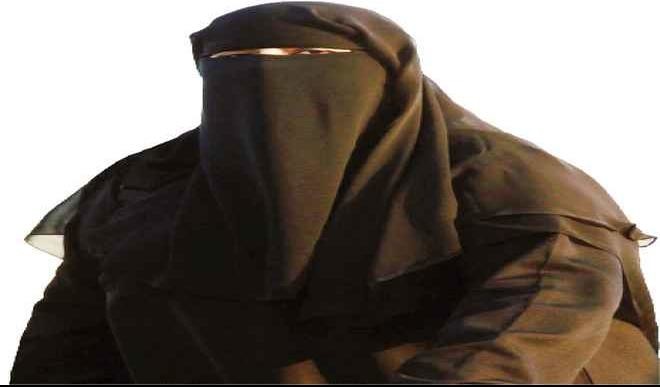Wanted: An urgent fatwa
About ten years ago, I walked into the Daily Trust editorial board meeting, at our garden gazebo, only to be handed an immediate assignment. Malam Modibbo Kawu then the board chairman had looked up and said ‘Hajiya, I’ve got the perfect topic for you’. ‘Really?’ I asked ‘What topic is it?’ And he went ahead […]


About ten years ago, I walked into the Daily Trust editorial board meeting, at our garden gazebo, only to be handed an immediate assignment. Malam Modibbo Kawu then the board chairman had looked up and said ‘Hajiya, I’ve got the perfect topic for you’.
‘Really?’ I asked ‘What topic is it?’ And he went ahead to tell me that I should draft an editorial on the lady who lost her court case in the UK, over her insistence to wear the face veil, niqab. I immediately replied that I won’t be able to write on that.
‘Why not?’ He asked and I went ahead to explain that the face veil was not an obligatory requirement in Islam. If the nursery school where that lady teaches insisted that she had to remove her niqab before she could retain her job, she had the choice to remove it or leave the job because niqab is not compulsory in Islam.
I also explained that what is obligatory is the head cover. In fact when the verse commanding Muslim women to observe the hijab was revealed (in Suratul Noor: 24; verse 31) the female companions went to Rasulallah SAW and asked how the hijab should be. He answered that it meant women should cover everything except the face and the palms of their hands.
So how can anyone insist that the exception should be the rule? We all know that the face is not an al-aurah, nudity or nakedness. Indeed there is no verse of the Qur’an or hadith of Rasulallah that states the need for face covering.
According to some ulama, the face covering originated from an encounter between Umar RA, the second caliph of Islam and his daughter Hafsa RA, the Prophet’s wife. The story was that one day Umar ran into Hafsa on the streets of Madina and called her to him. He scolded her for allowing herself to move around in a way that allowed her to be recognized. He said that as a member of the Prophet’s household, she must not be seen that way in public.
This incident, according to some scholars, is what gave birth to the niqab, because from then on Hafsa RA was said to never go out in a way that she could be recognized.
Now, today, mostly due to the widespread practice in Saudi Arabia and the influence of the kingdom as home to Islam’s holiest sites, women all over the world have taken to wearing the niqab; sometimes with adverse consequences.
We have heard of numerous incidents in Europe where the face covering has given rise to controversies and even court cases. Some countries have even banned the niqab because it conflicts with their laws.
What I can’t understand is why these women insist on a practice that is entirely optional and has the capacity to generate so much controversy. Even here in Nigeria, a couple of female students have gone to court challenging their institution’s right to deny them the use of the niqab.
Frankly, I think all this agitation is unnecessary. And this is why I believe we need an urgent Fatwa to address the great niqab controversy. Ordinarily, I would call on Saudi Arabia to convene an international conference of Islamic scholars with the aim of issuing a fatwa that will declare that all niqab wearers are observing a voluntary act which no one has decreed on them. They should be told that if they find themselves in a place where the niqab is a problem because the people lay a lot of emphasis on identification ( like is the case in the developed world) they should give in to the law of the land and keep their faces uncovered.
But now that Saudi is embroiled in an unnecessary war with it’s poor neighbour, Yemen, and is gearing up for a showdown with it’s rich cousin, Qatar, we can’t expect it to champion any Islamic cause.
I am therefore appealing to any international Islamic organisation that has the means and the clout, to organise such a conference and come up with a fatwa on this issue. We certainly need this ruling to enable our niqab-wearing sisters to know that they are not obliged to use it, if it breeds any kind of problem because it is entirely optional.
They should remember that they are expected to fight for their rights only when they are forced to abandon the hijab and keep their heads bare. But once they are able to keep their heads and other limbs covered, they are free to abandon the niqab, if it conflicts with the laws of their countries of residence, or the institution to which they belong. These women should be reminded that Rasulillah SAW has said that whenever there is a choice between two courses of action, a Muslim should choose the easier of the two.
Above everything else niqab wearers must be reminded that their faces are not al-aurah, nudity, so they are not obliged to cover them at all. And since the choice to cover their faces is entirely voluntary, they must not allow this choice to keep leading to unnecessary tension in Islamic communities.
